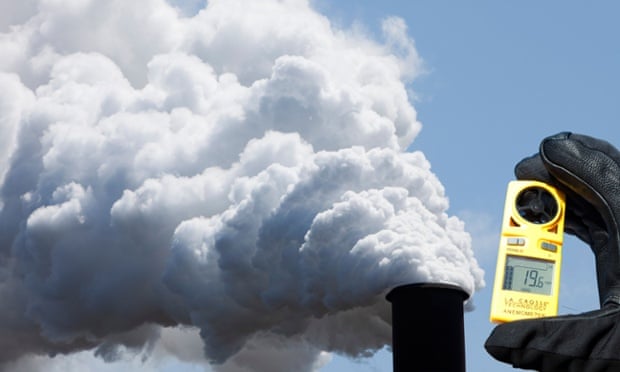
Most of us already know this, but not all greenhouse gases are created equal. There are some greenhouse gases that, when emitted, only stay in the atmosphere for a short time. There are other greenhouse gases (like carbon dioxide) that stay aloft for decades to centuries. Finally, there are some that stay airborne for an intermediate duration. It has often been stated that we can “buy time” by focusing on short-lived greenhouse gases. Reducing things like black carbon or methane can give us some extra years to get our act together on carbon dioxide.
But this suggestion is challenged in the PNAS paper. There are two major issues that suggest we really need to focus on the long-lived gases. First, since short-lived gases only stay airborne for a brief period, any emissions that we make now will not impact the temperatures we can expect say in 2100. Reducing our emissions of short lived gases will affect the rate of temperature increase in the next few years, but will have very little impact on the maximum temperature that will be obtained. In fact, the present study is clear in stating,
Maximum temperature increases (peak warming) is to first order determined by the cumulative emissions of the long-lived greenhouse gases until the peak and by the annual emissions of the short-lived greenhouse gases at the time of the peak.
This doesn’t mean that reducing short-lived greenhouse gases isn’t important. In fact, the short-lived gases become more important if we have already reduced carbon dioxide. As stated in the paper,
Methane mitigation measures in the latter half of the century become important if carbon dioxide emissions have already been curbed, and warming thus peaks before 2100. Early action on methane is less important for limiting warming to below 2C.
Part of the paper’s conclusions are based on simple calculations with a climate model. But another part of the study is based on the interdependence of these greenhouse gases. The gases are interdependent because they may be cogenerated – they may be emitted from the same source.
Take black carbon, for instance. Black carbon and carbon dioxide are often emitted together. So, reductions in carbon dioxide will also reduce the emitted black carbon. The opposite is not necessarily true, as black carbon can be reduced by cleaning exhaust gases of cars or switching to clean cook stoves, without fundamentally affecting the amount of carbon dioxide emissions. Methane and carbon dioxide are also more weakly linked so that reductions in one do not imply strong reductions in the other.
So, if humans were somehow to get onto a low temperature trajectory, one that limits temperature increases to 2°C or so, it means that we would have to nearly eliminate carbon dioxide emissions. Since one third to half of black carbon is strongly linked as cogenerated with carbon dioxide, it means that much less black carbon would be emitted as well. It is these links, understanding how greenhouse gases work together and are cogenerated, which makes this paper so interesting.
In the abstract, the authors warn,
Our results reinforce that short-lived climate forcer (reduction) measures are to be considered complementary rather than a substitute for early and stringent carbon dioxide mitigation. Near-term short-lived climate forcer (reduction) measures do not allow for more time for carbon dioxide mitigation.
The lead author confirmed to me,
Integrated approaches to find solutions to problems such as climate change, air pollution, and energy policy are critical. The physics of the Earth system indicate that stabilizing climate at any temperature means that, at some point, global CO2 emissions have to become zero. Near-term action to reduce short-lived climate forcers, like black carbon or methane, could help reduce warming in the coming decades and also provides possibly very important other societal benefits, such as cleaner air. However, it will not buy us time for delaying the reductions in carbon dioxide emissions which are required to stabilize the climate at safe levels.Our study shows the importance of integrated approaches to such complex problems. By taking into account the linkages between sources of short-lived climate forcers and climate forcers, we find that the long-term climate benefits of controlling these air pollutants and short-lived gases in scenarios that stabilize climate change – at 2, 2.5, or 3°C – might have been overestimated in earlier studies.
While reducing short-lived climate forcers can be a valid objective in its own right, for example, for their clear public health benefits, it is important that the expectations of what this will bring for climate stabilization and for reducing climate change over the coming decades are not overly optimistic.
It is important to note, however, that there are reasons to reduce short-lived greenhouse gases like black carbon. In particular, there are human health benefits associated with respiratory illnesses that can be reduced.







2 comments:
Reducing methane is just as important as reducing carbon dioxide. Methane is not a short lived GHG as it breaksdown into CO2 and water vapor, also GHGs, and is still over 30 times more destructive when considering forcing in the longer 100 year time frame. To downplay methane is a big mistake.
It would be a big mistake to ignore methane. It is leaking en masse from infrastructure, from drilling wells, from warming oceans releasing hydrates and from melting permafrost. Methane is the monster in disguise, and when it's done it's job heating at a rate far exceeding CO2, it breaks down to CO2 and water vapor, other GHGs. It is the single most important GHG to get a handle on.
Post a Comment